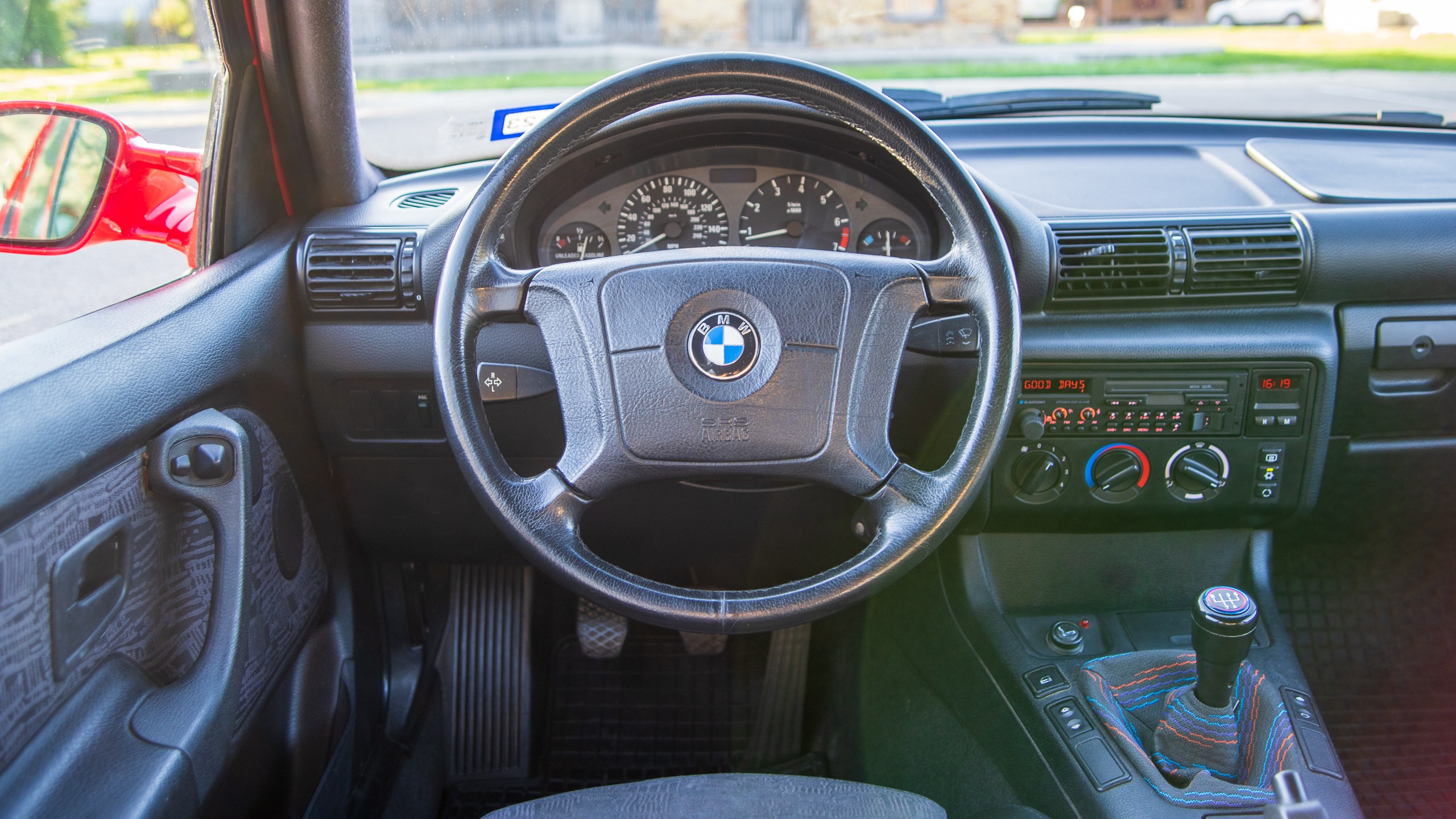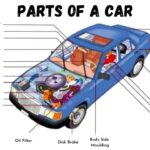For car enthusiasts, the quest for the perfect sound system is often as important as engine performance or handling. Upgrading car speakers can dramatically improve your driving experience, turning mundane commutes into immersive audio journeys. However, for owners of classic or niche vehicles like the BMW 318ti, sourcing the right components can be challenging. Parts, especially for models no longer in production, can be difficult to find, leading to compromises or expensive custom solutions. But thanks to the ingenuity of the online car community and the accessibility of local resources like 3D printing, upgrading your vintage car audio with readily available Local Car Parts is more achievable than ever.
The BMW 318ti, a sporty hatchback from the 90s, presents a unique speaker replacement challenge. The factory-installed 4-inch rear speakers are underwhelming by modern standards, and upgrading to more common and better-sounding 5.25-inch speakers isn’t straightforward. The mounting brackets for the stock speakers are designed specifically for the smaller size, making a direct swap impossible. Historically, 318ti owners faced limited options: settling for subpar replacements, attempting custom fabrication, or hunting down rare and costly adapter brackets from specialized manufacturers. Online forums dedicated to the 318ti, some dating back decades, are filled with discussions about this very issue, highlighting the long-standing need for a practical solution to integrate aftermarket local car parts.
Fortunately, the rise of 3D printing and the collaborative spirit of online communities have provided a game-changing solution. A fellow BMW enthusiast, engineer and graphic designer Andrew Curtin, recognized this problem and designed a 3D-printable adapter bracket specifically for the BMW 318ti. He generously made the design file (STL) freely available on Thingiverse, a platform for sharing open-source designs. This act of community contribution transforms the challenge of finding local car parts into a simple matter of accessing a 3D printer, often available at local libraries or universities. Curtin himself noted the lack of readily available and affordable adapters in the US as his motivation, emphasizing the practical need for a DIY and local car parts oriented approach.
The 3D-printed adapter design is elegantly simple yet highly functional. It’s a circular bracket with precisely placed holes that align with the 318ti’s rear panel mounting points and accommodate the larger 5.25-inch speaker. It even cleverly reuses the original fasteners from the factory speaker assemblies. While the 3D-printed adapter doesn’t replicate the angled positioning of the original speakers, the improvement in audio quality from the larger, modern speakers far outweighs this minor compromise. The beauty of this solution lies in its accessibility: anyone with access to a 3D printer can produce these adapters, turning a potentially complex and expensive problem into an easy and affordable DIY project using local car parts manufacturing.
Obtaining these custom local car parts is surprisingly straightforward. The author of the original article utilized the 3D printing services at their local public library. Many public libraries and universities now offer 3D printing facilities to the public at minimal cost, often charging by the gram of material used. For these speaker adapters, the print cost is negligible, making it an incredibly budget-friendly solution. After downloading the free STL file, the process involves simply submitting the file to the library’s 3D printing service, paying a small fee, and picking up the printed adapters a short time later – truly leveraging local car parts production capabilities.
With the 3D-printed adapters in hand, the next step is sourcing the 5.25-inch replacement speakers. These are readily available as local car parts from any major electronics retailer or auto parts store. Choosing a reputable brand like Pioneer ensures good quality and performance without breaking the bank. The author opted for Pioneer speakers, costing around $65 – comparable to the price of a couple of vinyl records – highlighting the affordability of this entire upgrade, especially when utilizing local car parts and resources. Installation is then a matter of removing the old speakers, fitting the 3D-printed adapters, and mounting the new 5.25-inch speakers. Some minor wiring adjustments, like replacing BMW’s proprietary connectors with standard female spades, might be necessary, but these are simple tasks for any DIY enthusiast.
In conclusion, upgrading the rear speakers in a BMW 318ti, a classic car with unique parts challenges, is easily achievable thanks to the power of online communities and accessible local car parts solutions like 3D printing. This project perfectly illustrates how the combination of shared knowledge, digital design, and local manufacturing resources can overcome the limitations of discontinued or hard-to-find automotive components. By leveraging freely available designs and local 3D printing services, car enthusiasts can enhance their vehicles with modern audio technology without resorting to expensive custom fabrications or settling for inferior replacements. This DIY speaker upgrade exemplifies the resourceful spirit of the car community and the growing potential of local car parts solutions to keep even vintage vehicles sounding their best.

